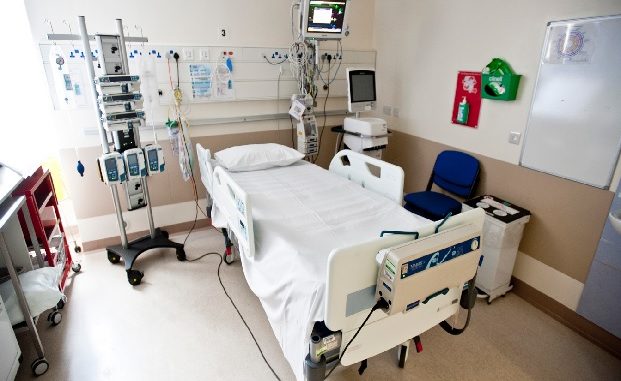
Changes are being made to stroke ward arrangements and cancer surgery as East Kent Hospitals Trust significantly increases the number of intensive care beds to look after patients with Covid-19.
From this week stroke services will move to Kent and Canterbury Hospital and from mid-April cancer surgery will also be provided at the Kent and Canterbury Hospital or local private hospitals – at no cost- depending on the type of surgery needed.
Additional equipment, including ventilators is being sourced. Measures are being put in place to increase capacity to provide Urgent and Emergency Care, and continue to provide Trauma, Cancer, Stroke and Maternity services.
Non urgent planned care appointments are being cancelled.
The situation will remain under review throughout the NHS response to coronavirus. These are temporary measures and not early implementation of long-term reorganisations.
The Kent and Medway Clinical Commissioning Group, to be formally established on April 1,2020, is providing a co-ordination and oversight role as the local strategic lead for the NHS response to Covid-19.
A CCG spokesperson said: “A huge effort is underway with the NHS mobilising to change the way that hospitals and GP practices run, freeing up hospital beds, bringing in more staff and ventilators, getting protective equipment to where it is needed and ramping up testing.
“The NHS has to deliver care in new ways to deal with the pandemic.”
Changes across Kent and Medway include:
Boosting critical care capacity. A massive increase in local critical care capacity. All hospital trusts will have tripled their critical care beds by within just a few weeks.
Medically fit patients have been rapidly discharged from hospitals. Working with social services, care homes, home care providers, GPs and community health services staff have discharged a significant number of medically fit people from hospital beds in the last week. These people will be provided with support either in their own homes or in care homes. The aim is for all hospitals to reach 70% bed occupancy.
Non-urgent surgery is being postponed. Theatres are being converted to provide more critical care beds with ventilators.
Outpatient appointments are being shifted to phone, video or online consultations. Some appointments will be postponed but where possibleare shifting to remote consultations and already between 60-80% of outpatient appointments are being done remotely.
Hospital trusts with more than one site are making/considering temporary changes to the location of some essential services. This is part of expanding capacity to treat patients affected by the virus while maintaining vital services for other vulnerable patients.
General Practice teams are reducing the number of ‘walk-in patients’ by using telephone/online appointment booking and triage and moving to telephone and video consultations. There is a roll out computers and software to GPs across Kent and Medway to allow them run phone/video consultations whilst working from home so doctors and nurses who are self-isolating or sick with mild symptoms can continue to provide care.
Some Primary Care Networks (groups of GP surgeries working together) are splitting care across different sites. This means some sites seeing patients with suspected or confirmed covid-19 and other sites aiming to remain virus free. Practices within networks will also support each other if individual practices need to close due to staff shortages.
A community support service is helping GPs care for patients who are stuck at home. The service is helping people who are self-isolating with covid-19 symptoms and/or vulnerable people shielding themselves from the virus but still in need of care for other conditions. The national requirement to commission similar services was withdrawn but it has continued to roll outwith a variation of these services across Kent and Medway.
A community testing service has been set up using clinically trained CCG staff. This will help test patients and staff and crucially help to allow clinical staff with negative tests to come back to work more quickly.
Independent sector hospital beds and staff are being sourced both to provide care for Covid-19 patients and to allow other urgent services to continue.
A central warehousing and distribution model for Personal Protective Equipment (PPE) is being established. This will co-ordinate distribution of PPE across all frontline health and care providers. Mutual aid across hospitals and other services is operating when current stocks have run low.
Save Our NHS in Kent
A spokesperson for campaign group Save Our NHS in Kent said: “Save Our NHS in Kent are concerned about the longer journeys to reach urgent stroke and other care due to this change; however, with roads being almost empty, the journey times will be shorter than usual.
“When lockdown ends, services must be resumed at Ashford and Canterbury, as before. We urge the NHS decision makers in Kent not to use this as an opportunity to push ahead with the controversial centralisation plans.
“The Coronavirus crisis has exposed the fallacy of NHS England’s policy of cutting NHS hospital beds. Over 17,000 beds have been cut since 2010. We hope that lessons will be learned from this crisis about the need for extra capacity, and we hope that NHS staff will be provided with comprehensive PPE (personal protective equipment) and access to testing immediately.”

